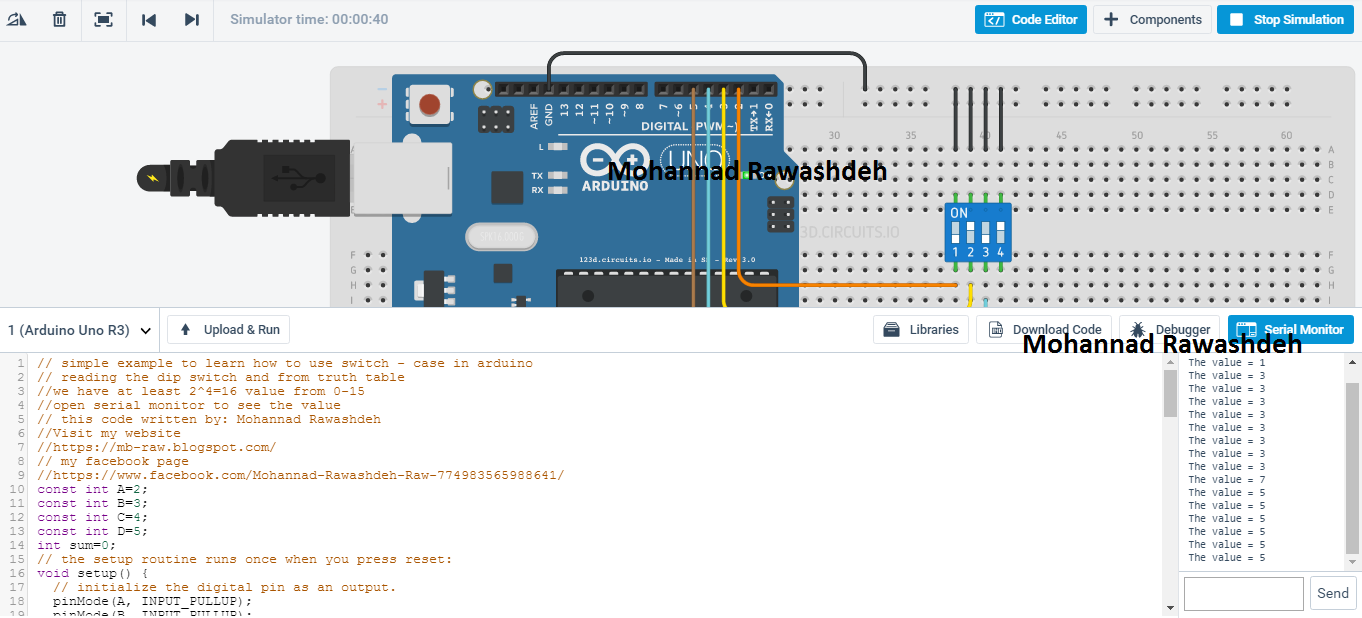
Select case arduino serial#
An alternative to serial for talking to the display. I 2C Communication - I 2C is a two-wire serial interface.Serial Communication - This is the simplest of the three communication standards used to talk to the display.
Select case arduino how to#

Or, you could just go with a few pieces of wire. You could use a combination of male headers and breadboard. You'll also need some way to connect between the display and Arduino. In the Arduino's stead, you could use an FTDI Basic, or any device capable of sending TTL serial data. Required MaterialsĪside from the display itself, you'll need an Arduino (or one of its variants) to send the serial data. The board is very easy to use since you can just plug it straight into an Arduino Uno compatible board and you can use the same exact code examples as the Serial 7-Segment Display which are covered in this tutorial. If you have the 7-Segment Shield, we recommend going to its tab first and beginning your journey there. This tutorial also covers the 7-Segment Shield.

Given the popularity of Arduino, the examples will make use of the ubiquitous development platform/language. We'll cover hardware set-up, assembly, and example interface circuits/code.

If it is not working, * then follow the clues in the error messages and see if you can fix it! * * * Luke Woodbury 6th April 2016 */ //our declarations.The goal of this tutorial is to get you familiar with the Serial 7-Segment Display. The code is * heavily commented and should help you work out what does what. * You will need to create code in the declarations, the setup, the main loop and make * some extra 'void' functions like those existing underneath the main loop. * - display a random number between 1 and 6 * * The code currently does this, but only with a 1 and a 4, it needs finishing! * Create the code to show numbers 2, 3, 5 and 6 too with reference to the circuit * diagram that shows what pin is connected to what LED bar on the display. * * We want to use this structure to control our display like a digital * die in the following way: * - if the button is pressed. * * Also look under the functions section and find 'Random Numbers' * look at the 'random' function to see how we use it in the code below. * * Look at the Arduino site reference page and the description of * the 'switch case' statement under the 'Structure' section. Everything you need is here, but you will need to * do some duplication and changing of names/numbers.
Select case arduino full#
* The full circuit has been given to you, but there is a fair bit of stuff * to add to the code.

case' statement to control a * 7 segment display used for displaying numbers and letters.


 0 kommentar(er)
0 kommentar(er)
